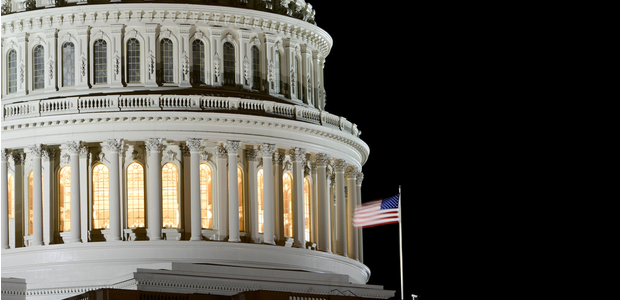Congress passes CR; White House tells feds to expect to work on Tuesday
Hours after the Senate passed a three-week continuing resolution, the House followed suit, sending the bill to the White House.

The House passed the three-week continuing resolution that was voted up in the Senate on Jan. 22.
The House vote was 266 to 150.
White House Press Secretary Sarah Sanders told reporters at her daily press briefing that feds should expect to come to work on Tuesday.
"In terms of what the turnaround time for a full reopen -- as I said earlier, we are waiting on the House to vote and clear, and then it will go through the OMB budget process and review -- and a legal review, and then hit the president's desk, which we expect sometime later afternoon, early evening, which would make most government offices already closed. And so they would start back in full capacity tomorrow morning," Sanders said. "And if that changes, we'll certainly let you guys know, but that's … what we tentatively expected this time.
While Democratic leaders freed members to vote as they wished, Minority Whip Steny Hoyer (D-Md.) said he was opposing the bill in remarks on the House floor.
Rep. Gerry Connolly (D-Va.), whose district is home to many federal employees and general contractors, declared victory in a statement announcing his support for the measure.
"I will vote to reopen government because we have big challenges that our constituents demand we address like ending sequestration, fighting the opioid crisis, and fixing the DACA problem the President created," Connolly said. "I will also vote yes because Senator McConnell pledged to finally allow us to address all those issues. His concession to our demands for action is a big victory for the Democrats and the American people."
In a floor speech, House Speaker Paul Ryan (R-Wis.) said there were no winners in the shutdown, possibly excepting the beneficiaries of the expired Children's Health Insurance Program, which was reauthorized for six years.
"But this is not a moment to pat ourselves on the back. Not even close," Ryan said.
Max Stier, president and CEO of the Partnership for Public Service warned against shutdowns becoming commonplace.
"Shutdowns should not and cannot be accepted as normal; instead, the American people should accept no less than timely budgets, modern civil service rules to attract top talent and policymakers committed to improving the health of our government," Stier said in a statement.






